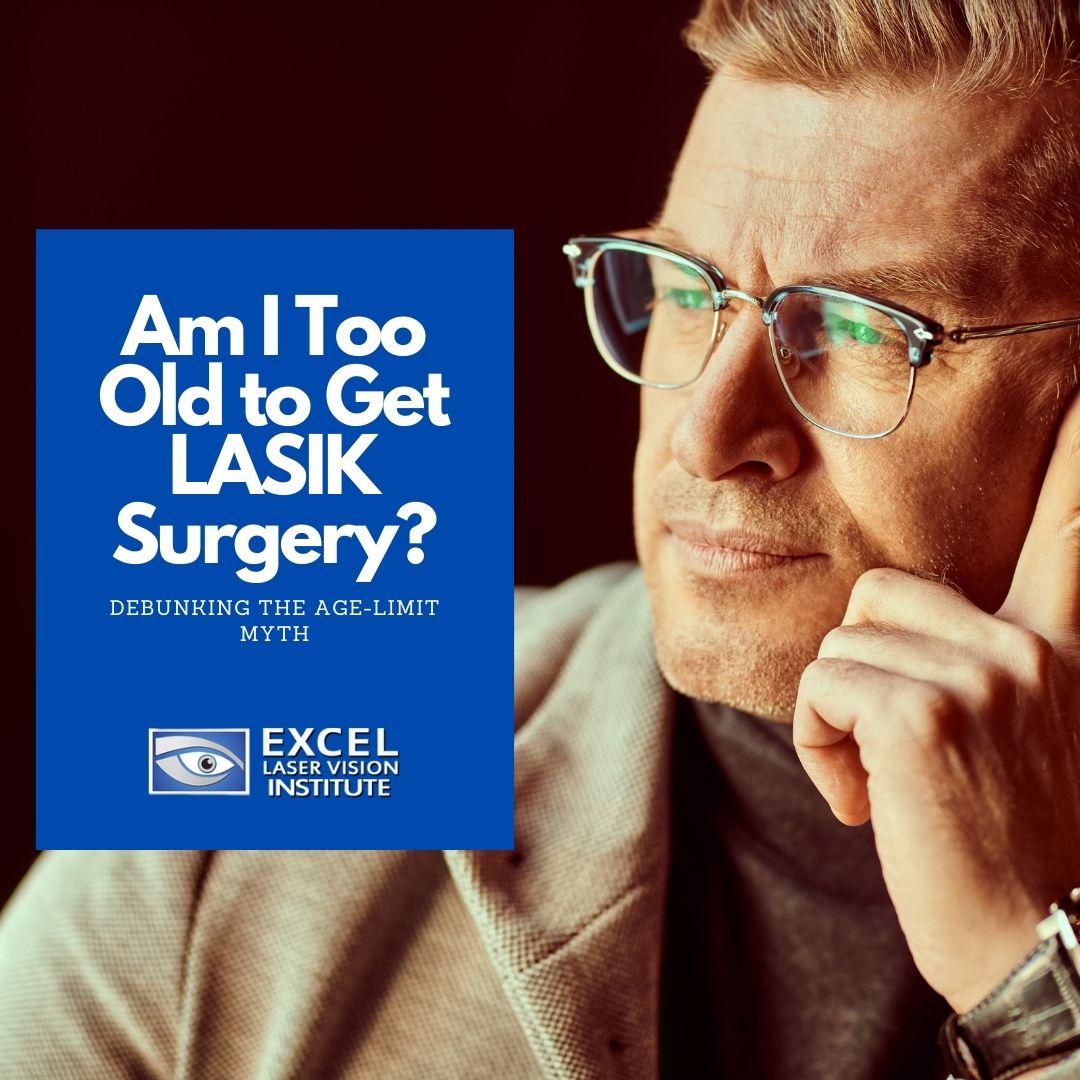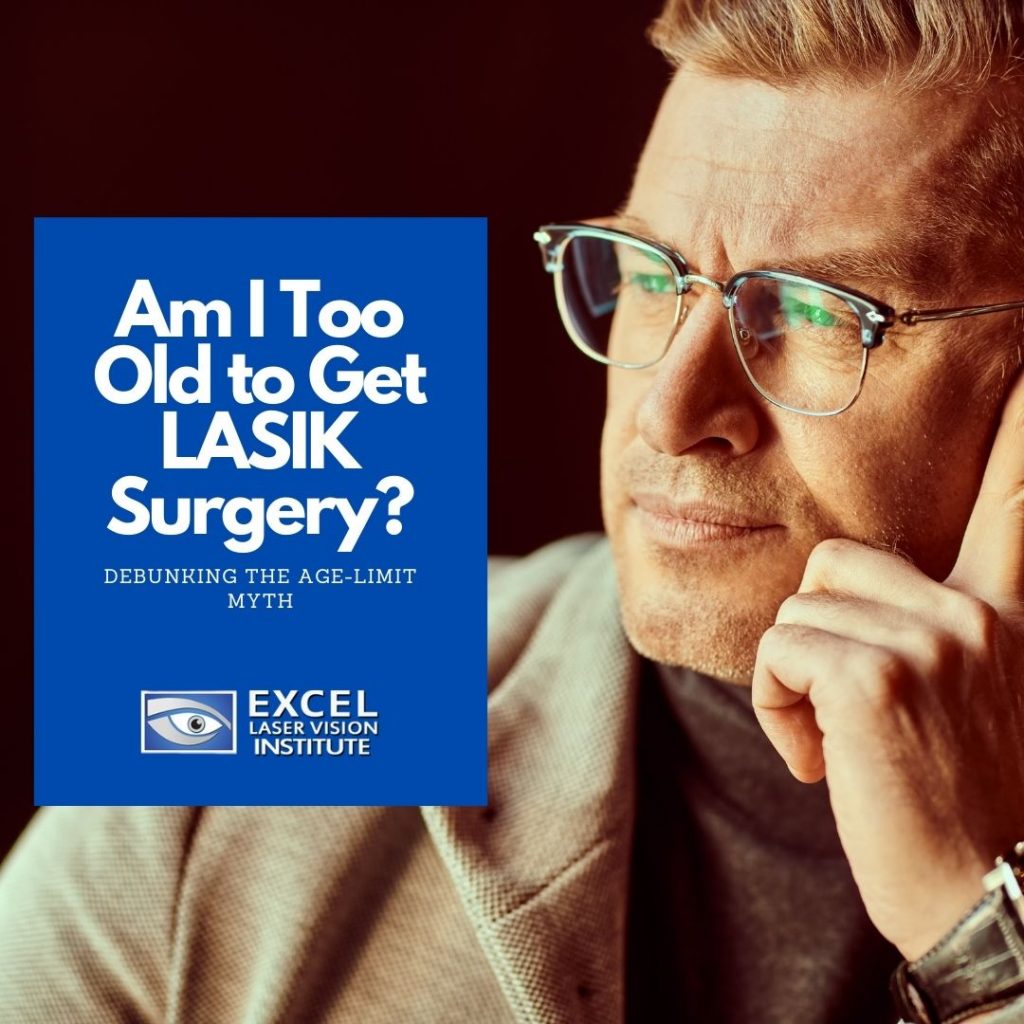
In order to qualify patients for laser eye surgery, there are certain guidelines that LASIK clinics in Los Angeles must follow. One of the guidelines states that you must be 18 years of age or older to receive the procedure. However, there is no age-limit to receive laser eye surgery.

According to Doctor Moosa, one of the best LASIK surgeons in Los Angeles, individuals in their 40’s, 50’s, and 60’s may very well be good candidates for laser eye surgery, depending on other factors like eye health. Generally, people under 18 are not considered good candidates because their eyesight is not within a stable prescription yet. Many people, even in their twenties, are asked to wait until their prescriptions have not changed for up to a year before committing to the procedure. However, there is currently no age limit that restricts qualified patients.
LASIK eye surgery can treat myopia, hyperopia, and astigmatism. In patients over 40, LASIK surgeons see a trend of presbyopia, which is age-related farsightedness. This can affect the flexibility of the eye lens and cause blurry vision. Fortunately, presbyopia as a condition does not immediately disqualify patients for LASIK eye surgery. There are methods by which a LASIK surgeon can still correct refractive errors and reduce dependency on corrective lenses.
Once individuals reach age 55, they may start to develop cataracts which cause lens clouding and blurriness. LASIK cannot treat cataracts, but patients may undergo cataract surgery and then consider LASIK surgery after, in order to further treat farsightedness, nearsightedness, or astigmatism. Therefore, LASIK may still be an available option, even for patients who are at an older age and are experiencing certain age-related conditions.
Besides being 18 years or older, there is no age requirement for LASIK patients. When evaluating a patient for laser eye surgery, doctors will consider their prescription, eye health, and general health. As long as someone has no medical conditions that will interfere with the surgery, they may very well be eligible for LASIK. The only way to know for sure is to speak to a qualified LASIK surgeon. When you go in for a consultation, you may ask questions like “how much is LASIK surgery?” and “how long does the procedure last?”. This is the perfect time to get clear on your vision goals and learn how refractive surgery can help you get there. Many people are fortunate enough to receive 20/20 vision after LASIK and can live independently from their glasses or contacts.
While age limits may not exist for laser eye surgery, there are other factors that may disqualify a patient for LASIK eye surgery. Here are some of them:
- Thin corneas – Patients with thin corneas may be better suited to alternatives like PRK.
- Medical conditions – Patients with autoimmune disorders or diabetes may have to take medications that could interfere with LASIK healing. Consult a LASIK specialist to see if your medical condition disqualifies you as a candidate.
- Eye diseases – Patients with corneal diseases, severe dry eye syndrome, amblyopia, keratoconus, glaucoma, and cataracts may not be eligible for LASIK eye surgery. However, in the case of cataracts, patients may be able to receive treatment for their condition and then be eligible for LASIK after.
- Eye infections or injuries – Patients that have suffered trauma to the eye or are fighting off infection may not be eligible for LASIK. However, they may be redirected to come back to the clinic for an evaluation after their eyes have fully healed.
- Pregnancy or nursing – Patients that are pregnant or currently nursing are not considered eligible for LASIK because of the hormonal fluctuations in their body. They may be eligible to receive laser eye surgery once their hormones have rebalanced.



